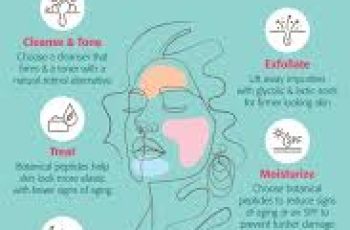
Free Radicals
In the world of skincare, the term “free radicals” is often thrown around, but what exactly are they, and why should we care? In this blog post, we’ll dive deep into the science of free radicals, also known as reactive oxygen species (ROS), and explore their impact on our skin’s health and appearance. We’ll discuss what causes free radicals, why they’re harmful, and most importantly, what we can do to protect our skin from their damaging effects of ROS.
ROS: Reactive Oxygen Species
In the skin care world, you will often see the term ROS when free radicals are discussed. This is because oxygen is a common free radical. When it loses an electron, it becomes reactive. Just as we need chocolate or food when we become reactive, oxygen needs to be given an electron to calm down.
What are Free Radicals?
Free radicals are molecules, usually made from oxygen, that are missing an electron, making them highly unstable and reactive. In a sense, they’re like a person craving a piece of chocolate, searching relentlessly for that missing element to feel complete. In their quest for stability, free radicals will steal electrons from other molecules in our skin, setting off a chain reaction of damage.
Causes of ROS
Free radicals can be generated by both internal and external factors. Internally, our bodies produce ROS as a natural byproduct of cellular metabolism. However, external sources such as UV radiation, air pollution, cigarette smoke, and certain medications can greatly increase the production of free radicals in our skin.
Oxidation
Oxidation is a fundamental chemical process that involves the loss of electrons from a substance. When a molecule loses electrons, it becomes oxidized, which means it has undergone oxidation. In the realm of skincare, oxidation can be triggered by a variety of factors, such as exposure to UV radiation, air pollution, and certain chemical reactions between incompatible ingredients.
When a skincare product becomes oxidized, it means that its chemical composition has been altered, often leading to a decrease in its effectiveness and potential harm to your skin. Oxidized products may change color, odor, or texture, indicating that their ingredients have broken down or reacted with one another in an undesirable way.
The process of oxidation often results in the formation of free radicals, which are highly reactive molecules that can damage skin cells and contribute to premature aging. Free radicals are unstable because they have an unpaired electron, causing them to seek out other molecules to steal an electron from, thus oxidizing them in turn. This chain reaction of oxidation and free radical generation can lead to oxidative stress, a state in which the skin’s natural defenses are overwhelmed, and cellular damage accumulates.
Skin Care Products Can Cause ROS
Certain skin care products such as benzoyl peroxide cause oxidation. You can also generate free radicals when you mix certain ingredients together. This is why your skin care routine design maters so much. If you take out skin type quiz, we can help you design a skin care routine to avoid these issues.
Incompatible Ingredients Cause ROS
Using the wrong skin care products in your skin care routine can cause free radicals. It’s essential to be mindful of the products you use together in your skin care routine and how you combine them. Certain ingredients, such as benzoyl peroxide and hydrogen peroxide, can oxidize other components in your skincare products when mixed together. This oxidation process can lead to the formation of free radicals, causing oxidative stress and potential damage to your skin.
For example, using benzoyl peroxide in combination with ascorbic acid (vitamin C) can cause the ascorbic acid to oxidize, rendering it less effective and potentially harmful. When exposed to benzoyl peroxide, ascorbic acid undergoes a chemical reaction that transforms it into dehydroascorbic acid, which is an inactive form of vitamin C. This oxidation not only diminishes the antioxidant benefits of ascorbic acid but can also generate free radicals that can damage your skin cells.
You can read more about using retinol, Vitamin C and niacinamide together here.
Sunscreen and Free Radicals
Chemical sunscreens have been shown to generate free radicals when exposed to UV radiation. They longer you are in the sun, the more likely this is. In some cases the ROS generated by SPF will cause other ingredients to change into allergens. This phenomenon is known as phototoxicity, and it can lead to oxidative stress and skin damage to your skin cells. To minimize this risk, consider opting for physical (mineral) sunscreens that contain ingredients like zinc oxide or titanium dioxide. These sunscreens work by reflecting UV rays away from your skin, rather than absorbing them like chemical sunscreens do.
Oxygen May Increase Oxidation
Oxygen is essential for healthy skin, as it plays a crucial role in cellular respiration and energy production. However, the use of topical oxygen in skincare products has been a topic of debate among skincare professionals and researchers. Some products claim to deliver oxygen directly to the skin, promising to revitalize and rejuvenate the complexion. While oxygen is necessary for skin health, the idea that applying topical oxygen can benefit the skin is questionable.
In fact, the use of topical oxygen on the skin may actually increase the production of reactive oxygen species (ROS). When oxygen molecules are applied to the skin, they can react with other molecules and generate ROS, such as hydrogen peroxide and superoxide anion. These ROS can cause oxidative stress, leading to cellular damage, inflammation, and premature aging.
Why Oxidation and Free Radicals Are Harmful
When free radicals steal electrons from other molecules in our skin, they cause oxidative damage to crucial components like DNA, proteins, and lipids. Over time, this damage accumulates, leading to visible signs of aging such as fine lines, wrinkles, and uneven skin tone. Free radicals can also break down collagen and elastin, the proteins responsible for keeping our skin firm and youthful-looking.
Preventing Free Radical Damage
While it’s impossible to completely avoid exposure to free radicals, there are steps we can take to minimize their impact on our skin. One of the most important things you can do is protect your skin from UV radiation by wearing a broad-spectrum sunscreen with an SPF of at least 30 every day. Also use antioxidant ingredients in your skin care routine. Adopting a healthy lifestyle that includes a diet rich in fruits and vegetables, regular exercise, and avoiding smoking and excessive alcohol consumption can help reduce the production of free radicals in the body.
Free radicals may be tiny molecules, but their impact on our skin’s health and appearance is significant. By understanding the science behind these reactive oxygen species and taking steps to prevent and combat their damaging effects, we can help our skin look and feel its best for years to come. Incorporating antioxidant-rich skincare products, adopting a healthy lifestyle, and practicing daily sun protection are all powerful tools in the fight against free radicals.
While antioxidants are a crucial weapon in the fight against free radicals, they work best as part of a protective personalized skincare routine.


